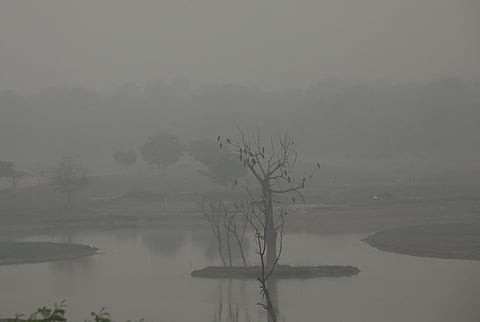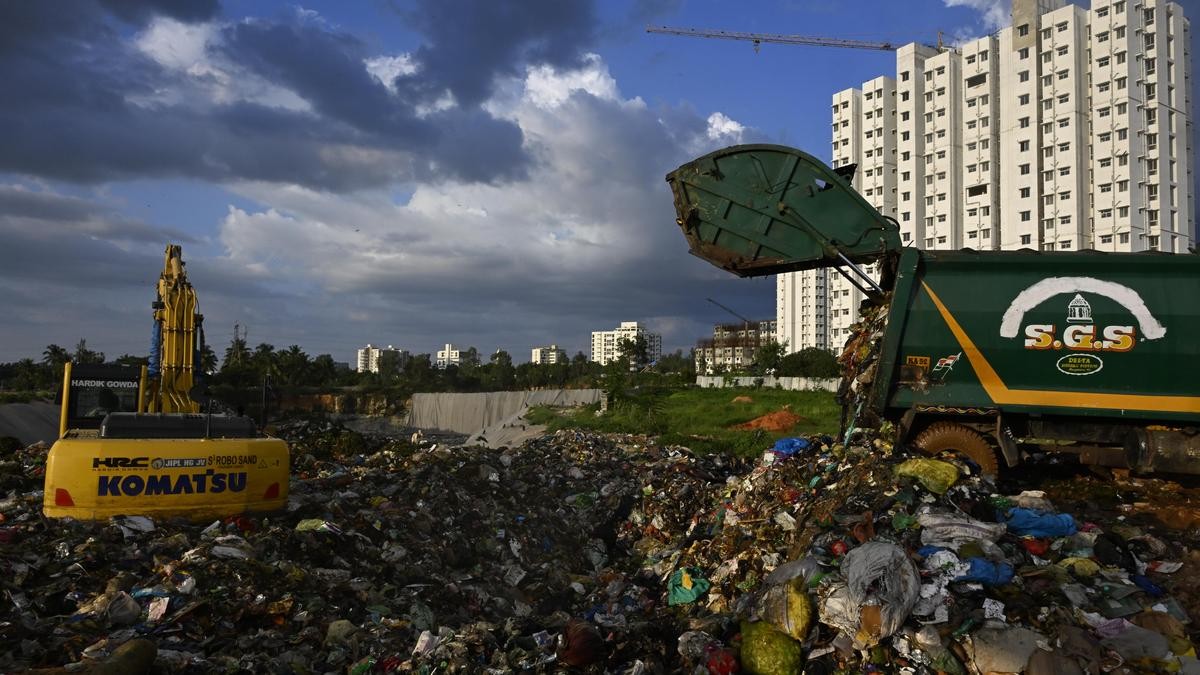Description
Disclaimer: Copyright infringement not intended.
Context:
Ambergris, also known as whale vomit, is a rare and valuable substance. It is produced by sperm whales. It is very expensive, especially in the perfume industry, as it helps fragrances last longer.
What Is Ambergris and Where Does It Come From?
- Ambergris, which means "gray amber" in French, is a waxy, soft substance that forms in the digestive tract of sperm whales.
- It's not actually vomit. Sperm whales eat a lot of squid and cuttlefish, but they don't digest it all.
- Some of the undigested matter is expelled as vomit, but most of it becomes ambergris in the whale's intestines.
- Ambergris can sometimes be excreted and found floating in the ocean.
- If it grows too large, it can harm the whale's intestines, causing the whale to die.
From Soft and Waxy to Rock-Like Treasure
- Fresh ambergris is soft, waxy and smooth.
- Over time, ambergris is exposed to sunlight, salt water and air.
- This changes its consistency and the outside becomes hard and scaly, while the inside may still be soft and waxy.
- Hard ambergris is most commonly found washing up on beaches.
Why Is Ambergris So Expensive?
- Ambergris is rare because it is difficult to find, which makes it highly valuable.
- Ambergris is highly sought after because it acts as a fixative.
- It helps perfumes last longer on the skin, making it a valuable ingredient in high-end, luxury perfumes.
- Price: Depending on its quality, ambergris can cost up to $40,000 per kilogram, which further adds to its high price.
Is it Legal globally and what is status in India ?
- Ambergris is legal in some countries such as the United Kingdom, New Zealand, France, Switzerland and the Maldives.
- However, its sale and trade is restricted in India and is prohibited under the Wildlife Protection Act, 1972.
- Sperm whales were declared endangered in 1970 due to threats such as hunting and environmental issues.
- The ban on the trade of ambergris is to protect sperm whales and prevent a decline in their population.
About Sperm Whales (Physeter macrocephalus):
- The sperm whale is the largest toothed whale species.
- The name "sperm whale" comes from spermaceti, a waxy substance found in their heads, which helps them focus sound waves. This is important for their deep-sea hunting.
- Habitat: They live in the deep ocean, usually at depths of over 1000 meters.
- Threats: The main threats to sperm whales are fishing activities and marine pollution, which negatively affect their populations.
Conservation Status
- Sperm whales : vulnerable on the IUCN Red List of Endangered Species.
- CITES (Convention on International Trade in Endangered Species) : Appendix I to prevent international trade in their body parts.
- In India, Schedule II under the Wildlife Protection Act, 1972
- Convention on Migratory Species (CMS) in Appendix I.
Source:
The Hindu
|
PRACTICE QUESTION
Q. With reference to ambergris, commonly referred to as whale vomit, consider the following statements:
- Ambergris is produced in the digestive tract of sperm whales and is primarily found in the ocean or on beaches.
- Ambergris is highly expensive due to its rarity and its role as a fixative in luxury perfumes.
- The trade of ambergris is legal in India as it is not listed under the Wildlife Protection Act, 1972.
Which of the statements given above is/are correct?
(a) 1 and 2 only
(b) 1 and 3 only
(c) 2 and 3 only
(d) 1, 2, and 3
Answer: (a)
Explanation:
● Statement 1 is correct: Ambergris is a rare, waxy substance produced in the digestive tract of sperm whales and can be found in the ocean or washed up on beaches.
● Statement 2 is correct: Ambergris is expensive due to its rarity and is highly sought after in the perfume industry for its fixative properties, which help fragrances last longer.
● Statement 3 is incorrect: The trade of ambergris is prohibited in India under the Wildlife Protection Act, 1972, to protect sperm whales, which are listed as vulnerable.
|











